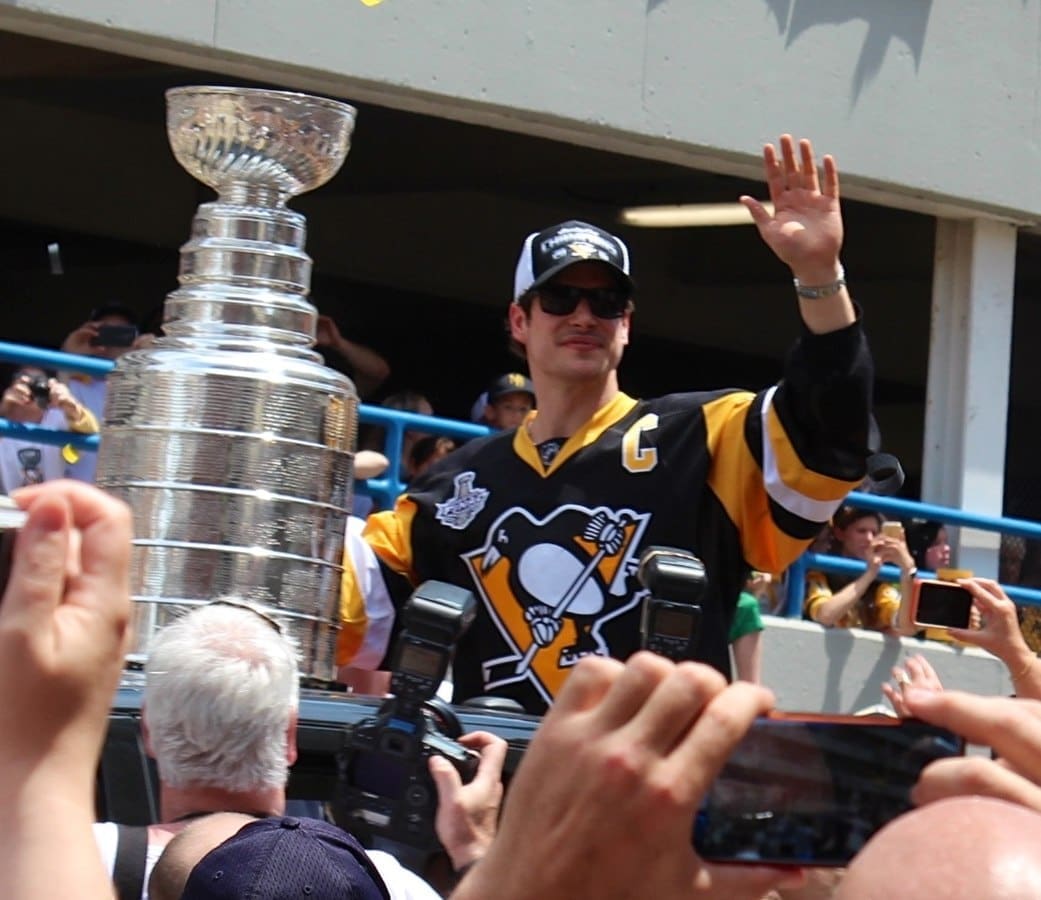Penguins
It’s Possible to Win a Stanley Cup Without Superstars; But it Ain’t Easy

The New York Islanders will begin next season without John Tavares, their captain and best player since the early ’80’s salad days of their Stanley Cup dynasty. The Ottawa Senators will most likely be in the same boat, this year or next without Erik Karlsson. As teams tank and wiggle into the draft lottery hoping for a generational talent to carry them to the promised land, believe it or not, other teams have won a Stanley Cup in the salary cap era without superstars in their prime. But it sure isn’t easy.
Ahem, Pittsburgh. You needn’t worry about this stuff now. In a few years, you will.
The Los Angeles Kings won a pair of Stanley Cups (2012, 2014) with Anze Kopitar up front and Drew Doughty on the back. Doughty is considered one of the best defensemen in the game, and Kopitar is an annual Selke Trophy contender as best defensive forward. However, neither player is a generational talent. Los Angeles amassed as much shot blocking, physical, defensively responsible talent as the law allowed, then sprinkled in a few players like Marian Gaborik and Jeff Carter for just enough offense to win a pair of Cups.
In 2013-14, the Kings allowed the second-fewest Corsi-Against (shots/shot attempts). It was nearly impossible to score against them. It was the same story in 2011-12. In fact, in 2011-12, the Kings also scored the second-fewest goals. The didn’t drive their Corsi through the roof with puck possession; they did it by taking away space.
The 2010-11 Boston Bruins had Patrice Bergeron at center and Zdeno Chara on the blue line. They too were a physical, pounding bunch who won a Stanley Cup and advanced to another Stanley Cup Final by preventing their opponents from scoring and finding just enough offense. The 2011 Bruins had average regular season analytics but caught fire late in the season and steam-rolled through the playoffs.
Those teams didn’t have a prolific scorer like Patrick Kane or anything close to a Sidney Crosby. It’s debatable the Kings or Bruins Cup teams even had a “Phil Kessel” type scorer.
The 2017-18 Vegas Golden Knights almost pulled off the same feat. Last season, the Winnipeg Jets and Bruins also knocked on the door with deep rosters but a lack of household names in their prime.
But a superstar sure does make things easier.
The flip side of the Bruins and Kings championships are the Penguins, Chicago Blackhawks, and the Washington Capitals. In broad strokes, those teams were laden with future hall-of-fame guys but also received relentless support from role players. The TV cameras often quickly panned to Capitals star Alex Ovechkin after (should-be-star) Evgeny Kuznetsov scored a wicked goal or Devante Smith-Pelly teamed with Jay Beagle on another big moment.
Commonalities
Defense Responsibility:
The commonalities of the last half dozen teams to win the Stanley Cup may seem small, but they’re significant. No team has won the Stanley Cup with firewagon hockey, or by trying to outscore their opponents. It may seem weirdly antithetical, but the strategy is not to score more goals than the opponent. To win 43 pounds of silver, it’s about preventing the opponent from scoring more goals than you.
Since advanced statistics began in 2007, the 2017 Penguins were easily the worst defensive team (in the playoffs) to win. They allowed over 2.7 goals per game (in the playoffs). No other winner allowed more than 2.2.
5v5 Goals:
The 2016 Penguins joined the Blackhawks (2010, 2013, 2015) as puck hogs. The Blackhawks finished each Cup season in the top four Corsi teams. Like the other winners, both clubs were Corsi monsters, but they also scored 5v5 goals. In the playoffs, the power play is less effective because it gets fewer chances. (Sorry, 2017-18 Penguins), so even strength goals are paramount.
The 2017 Penguins and ’18 Capitals poke holes in the Corsi strategy but confirm the even strength goals necessity. Some teams are better counter-punchers than their opponents are punchers. Boatloads of scoring depth help in this regard.
No team has won a Stanley Cup without being a top four team in goals-for per 60 minutes (playoff statistics). The 2015 Blackhawks (53%) were the only team to win with a goals-for percentage below 55 percent. Though forgive them, that Blackhawks team was exhausted after five three straight seasons in the Stanley Cup Final or Western Conference Final. (You’d love our friend Mark Lazerus’ behind the scenes book — If These Walls Could Talk).
Most teams were well above 56 percent of goals-for, as well.
Personnel Issues
And in personnel is where all teams diverge. The Blackhawks had a depth of great players from Jonathan Toews, Patrick Kane, Marian Hossa, and Duncan Keith. You know the Penguins and Capitals roll call.
The Kings and Bruins compositions were much different. The only commonality is each team was great at something–5v5 goals, suppression, or speed. And if you have a magic formula for that, there are a few teams in the NHL who may want to talk.












